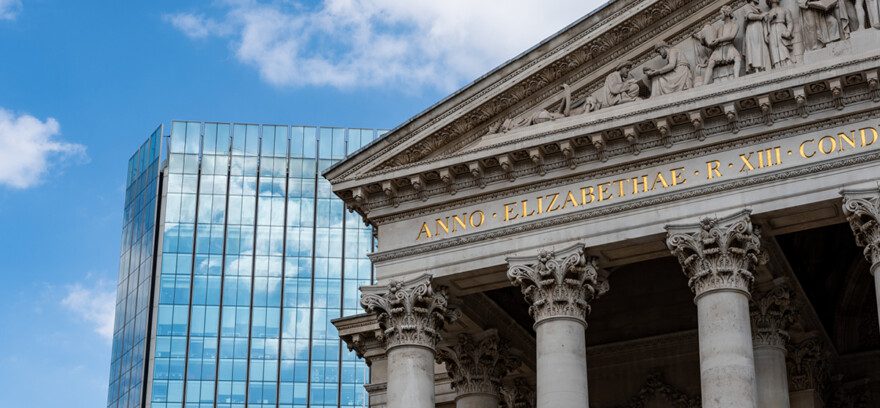UK markets stabilised this week, with the FTSE 100 Index gaining 1.2% to trade at 7,350 points at the time of writing. UK private sector firms signalled a renewed downturn in business activity in August, thereby ending a six-month period of expansion. This mostly reflected a faster fall in new orders as sluggish domestic economic conditions and higher borrowing costs led to caution among clients.
Inflationary pressures continued to moderate in August, with input costs rising at the slowest pace for two and a half years. That said, there were again many reports of persistently strong wage pressures. Average prices charged by UK private sector companies also increased at the softest rate since February 2021.
The Bank of England warned on Tuesday that British companies face a higher risk of corporate defaults, posing a threat to investment and employment, as a result of rising interest rates. The share of non-financial UK companies experiencing debt-servicing stress and those with a low ratio of earnings to interest expenses will rise to 50% by the end of the year, from 45% in 2022. Higher interest rates are putting pressure on indebted corporates through higher debt servicing costs. Such pressure increases the likelihood of defaults on corporates debt and may lead some firms to reduce investment and employment.
On a more positive note, UK consumer confidence rose more than expected in August, helped by lower energy prices and accelerating wage growth, research group GfK said on Friday.
Commodity markets
In the commodity markets, Brent crude futures traded around $84 per barrel on Friday, rebounding from a sell-off earlier in the week caused by disappointing economic data from key economies.
Manufacturing data from a host of Purchasing Managers’ Index surveys on Wednesday painted a grim picture of the health of economies across the globe, raising demand concerns. Japan reported shrinking factory activity for a third straight month in August and Eurozone business activity declined more than expected, particularly in Germany. The UK economy also looks set to shrink in the current quarter, leaving it in danger of falling into recession. US business activity approached the stagnation point in August, with growth at its weakest since February.
China’s worsening growth momentum is the primary cause of the deterioration in global manufacturing, which is weighing on European countries, such as Germany, where growth remains heavily exposed to Chinese demand. On the supply side, Iran’s crude oil output will reach 3.4 million barrels per day by the end of September, the country’s Oil Minister said, even though US sanctions remain in place.
Gold traded around $1,915 an ounce on Friday, rising to a two-week high, fuelled by the weaker economic data and likely interest rate guidance from central bankers at the annual symposium in Jackson Hole.
Equity markets
In anticipation of the aforementioned summit, US equities rose on Friday, although in Thursday’s regular trading session The Dow Jones Industrial Average lost 1.08%, the S&P 500 Index fell 1.35%, and the Nasdaq Composite slipped 1.87%. This marked the worst day for the Dow Jones since March, and the biggest losses for the S&P 500 and the Nasdaq since early August, as a tech rally led by the semiconductor sector proved to be short-lived.
Boston Federal Reserve President Susan Collins said more interest rate increases might be needed to bring inflation down to the central bank’s 2% target. Collins highlighted the resilience of the US economy, stating that there was not yet enough evidence of the slowing needed to return to 2% inflation in a reasonable amount of time.
Yields on two-year US treasuries and the benchmark 10-year notes both rose while the dollar strengthened, as investors began to price in higher rates. Data released on Thursday sent mixed signals about the US economy, which has remained relatively resilient amid the Federal Reserve’s rate rises. There were 230,000 new applications for US unemployment aid in the week to August 19th, down from 240,000 the previous week, but still a relatively robust reading. Separately, new orders for durable goods excluding defence and aircraft, a popular proxy for business investment, increased by 0.1% in July.
The information provided in this communication is not advice or a personal recommendation, and you should not make any investment decisions on the basis of it. If you are unsure of whether an investment is right for you, please seek advice. If you choose to invest, your capital may be at risk and the value of an investment may fall as well as rise in value, so you could get back less than you originally invested.
